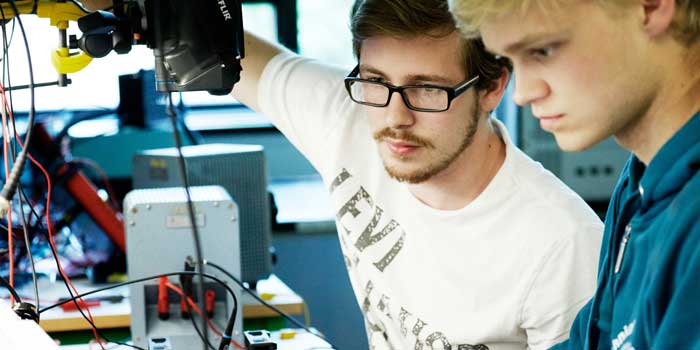The University of Copenhagen (KU) and the Technical University of Denmark (DTU) have both been ranked among the top 100 universities in the world for delivering work-ready graduates by THE (Times Higher Education).
KU moved up one spot to 51st on the THE’s 2016 Global University Employability Ranking compared to the previous year, while DTU took a massive leap from 112th to 76th this year.
KU was ranked the top Nordic university on the index (see here in English), followed by Stockholm University (ranked 62 overall), University of Helsinki (73), DTU and Lund University (78).
Complex eligibility requirements
The Global University Employability Ranking is based on survey results from 3,450 CEOs in international companies, who agreed that a candidate’s job eligibility consists of a mix of job-related competencies such as relevant experience, high degrees of specialisation, and at least two foreign languages.
The CEOs also focused on ‘softer’ values such as attitude and behaviour, which impact an individual’s conduciveness to adapting, communication and teamwork.
The top 10 of the ranking was dominated by US universities. California Institute of Technology topped the ranking, while Massachusetts Institute of Technology, Harvard University, University of Cambridge and Stanford University completed the top five.
Yale University, University of Oxford, Technical University of Munich, Princeton University and University of Tokyo rounded out the top 10.
READ MORE: DTU remains the most innovative Nordic university
Not so jagged alliance
In related news, KU revealed that it has been invited to join the prestigious strategic university research alliance League of European Research Universities (LERU). The membership will give KU more influence over EU decision makers and better opportunities to in terms of attracting funding from the EU. KU will become the first Danish university to join the exclusive alliance on January 1.
“The University has a strong tradition of international cooperation. The LERU network is an important step towards having more influence at EU level and being heard by decision-makers in Brussels,” said Ralf Hemmingsen, KU’s rector.
“Our researchers are already quite skilled at obtaining research funds from the EU, however, we think that this alliance can make us even stronger. By working together, learning from and sharing knowledge with the other European universities we can heighten the impact of our research and educational activities in Denmark and globally.”














